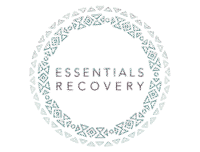Addiction can leave people feeling isolated, powerless, and uncertain about the future. But recovery tells a different story. It’s a journey of rediscovery, healing, and growth. For many, it begins with a simple yet powerful belief—hope. Hope that change is possible, that life can be different, and that healing is within reach.
The path to recovery looks different for everyone, but one thing remains constant: it is a process. There are challenges, setbacks, and moments of doubt, but there is also strength, clarity, and transformation. Finding hope is often the first and most important step.
Understanding the Need for Change
Recovery often begins with a moment of realization. It may come after a personal loss, a health scare, a legal issue, or simply a quiet moment of reflection. This awareness that something needs to change is not always easy to accept. It can bring fear, guilt, or uncertainty.
But within that awareness lies the seed of hope. It means that part of you is ready to imagine a different life—one that is not controlled by substances or destructive behaviors. Acknowledging that need for change is a courageous step forward.
For many people, it’s not about hitting rock bottom but about recognizing that life could be fuller, more peaceful, and more meaningful. That recognition opens the door to recovery.
Taking the First Steps
Beginning the recovery journey often requires reaching out for help. Whether it’s confiding in a loved one, attending a support group, or entering treatment, asking for support can feel vulnerable. But it’s also one of the strongest choices a person can make.
The early stages of recovery are about building a foundation. This might include detox, therapy, learning about addiction, and beginning to develop healthy coping strategies. It’s also a time of emotional discovery. Feelings that were once numbed may resurface, and learning to navigate them without substances can be overwhelming.
In these early steps, having a support system is vital. Whether through professional treatment, peer groups, or trusted friends and family, support helps build resilience. It reminds individuals that they are not alone in this journey.
Navigating Challenges and Building Resilience
Recovery is not a straight line. There will be times of progress and moments of struggle. Cravings, emotional triggers, and life stressors can test a person’s commitment. But these challenges do not mean failure—they are part of the process.
Each obstacle offers a chance to learn more about yourself, your needs, and your strengths. Resilience is built by facing discomfort and continuing to move forward, even when it’s hard. It’s okay to stumble. What matters most is the decision to keep going.
Support groups, therapy, mindfulness practices, and self-care routines all play a role in managing challenges. Developing a personalized toolkit for coping can help maintain balance and prevent setbacks from becoming permanent detours.
Discovering a New Identity
Recovery is not just about giving something up—it’s about gaining a new way of living. As the fog of addiction lifts, many people begin to rediscover who they are without substances. They explore values, passions, relationships, and goals that may have been set aside for years.
This period of self-discovery is both exciting and intimidating. It may involve rebuilding trust, setting boundaries, or making significant life changes. But it also opens up space for joy, creativity, and meaning.
Many people find that recovery helps them connect more deeply with themselves and others. They begin to see their worth and potential in a new light. They realize that they are more than their past and that a future full of purpose is possible.
The Power of Hope
Hope is what sustains recovery through the hardest days. It’s what reminds someone to keep showing up, even when progress feels slow. Hope is not about pretending everything is easy—it’s about believing that healing is possible, even in the face of difficulty.
Hope can be found in stories from others who have walked the path. It can come from small victories, like making it through a tough day or reconnecting with a loved one. It can grow stronger with each step forward, no matter how small.
Over time, hope becomes more than a feeling—it becomes a belief. A belief in the possibility of change, the strength of the human spirit, and the ability to build a life worth living.
Staying Committed to the Journey
Recovery is a lifelong journey, not a destination. It evolves with time, experience, and growth. Staying committed means continuing to care for your physical, emotional, and spiritual well-being. It means reaching out when you need help and celebrating progress along the way.
It’s important to remember that recovery doesn’t happen in isolation. Community, connection, and compassion are essential. Being part of a supportive network not only helps prevent relapse but also enriches your recovery experience.
Continued therapy, support groups, healthy routines, and meaningful relationships all serve as anchors. These elements create stability and help protect your progress as life inevitably brings new challenges.
Final Thoughts
The journey of addiction recovery is one of hope, courage, and transformation. It begins with the belief that change is possible and continues with the daily choice to pursue healing and growth. Along the way, there will be setbacks, but there will also be powerful breakthroughs.
Recovery is not about becoming someone new—it’s about returning to who you were meant to be. Each step, each moment of clarity, and each act of self-care is a testament to your strength. And through it all, hope remains the guiding light.
No matter where you are on the path, you are not alone. With support, commitment, and hope, a new life is within reach—one day at a time. Call us today at 855-509-1697.



